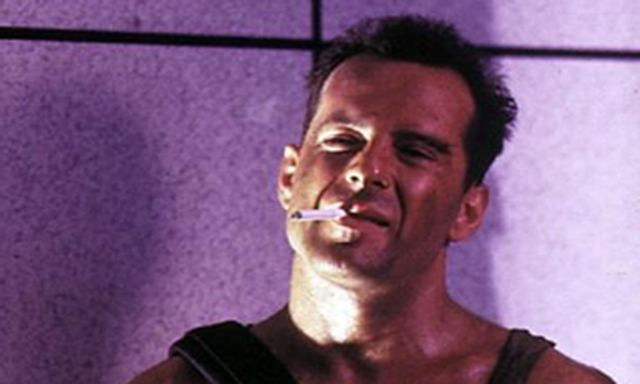Before a single scene has been filmed or an explosion set off, the prequel to the Die Hard series is facing an uphill struggle.
Len Wiseman, who previously directed the tepid Die Hard 4.0 (Live Free Or Die Hard as it was called in the US), has been called back to the series after our own John Moore tried to drive the whole thing off a cliff and finish it for good. This prequel / sequel, as it's being touted, will see John McClane in the '70s as a New York beat-cop and will illuminate the mystery as to why he's such a bitter, angry man and who the character is.
Right from that, that's the problem with this film. We already know enough about John McClane from the first film to understand him. The very first scene of Die Hard sees him out of his comfort zone, on a plushy airplane, seated next to a businessman. From there, he's picked up by a limo driver and refuses to sit in the back. That tells us that McClane is a working-class cop who's ill at ease with the gaudy trappings of Los Angeles. In fact, he's in direct contrast to the erudite, well-mannered Hans Gruber. If you look hard enough at Die Hard, there's almost a whiff of class struggle off the thing.

Anyway, back to Year One.
McClane's character is defined by his simplicity. He's a straightforward, no-nonsense cop who happens to be in the wrong place at the wrong time. The reason why the first Die Hard worked so well was because we genuinely believed that fact. Willis, at this stage, was coming off the back of TV's Moonlighting. He didn't look like the action heroes of that time period, all muscles and giant machine guns.
He dressed like a regular guy, carried a standard gun because he was a regular detective, smoked cigarettes and was probably out of shape. Yet, using his cunning and guile, he was able to take on a group of well-armed European terrorists in a game of cat-and-mouse in a Frank Lloyd Wright-inspired corporate wonderland. He didn't drive motorcycles into helicopters to blow them up, he didn't go to Russia to help his son defeat a mad scientist bent on using enriched uranium. No, he was at a Christmas party and people turned up to steal the vault upstairs. That was it. And this was the very first time something like this happened to him.
By trying to make the character of John McClane more than what he is is diluting it entirely. We don't need to know what happened to make what he is now. All we know is that he's bitter and that's all there is. The character was a ordinary cop dropped into an extraordinary situation. The likelihood that he had some other extraordinary situation earlier in his life just doesn't add up. It's no wonder that some randomer thought he could take out a full-page advertisement and pitch an entirely new idea to the studio. The idea they're working off is so wrong in the first place, anyone could throw an idea into the ring and it'd be worth considering.
As it stands, Die Hard is an abject example of just how far a franchise can get away from what started it all. What's more, who could they possibly hope to cancel in the role? Bruce Willis was, at the time of the first Die Hard, roughly 33 years old then. There's no actor on the way up that matches Willis at the height of his powers, especially considering that Jai Courtney tried and was an utterly spectacular failure.
Of course, this is all pointless arguing about it really. Despite the crushing reviews that A Good Day To Die Hard received, it took in $304.7 million at the box-office on a budget of $92 million. People still hold a place in their hearts for John McClane, but the lack of dignity with which the character's been treated is shameful.
Leave it alone, studio execs.




















































































